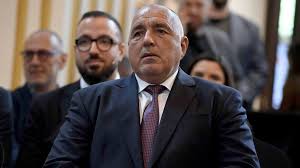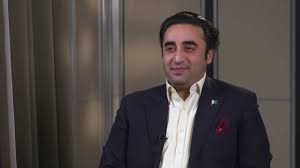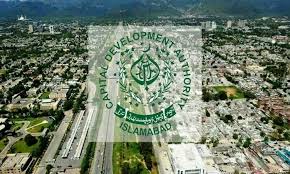Bulgaria’s GERB party eyes election win, return of old ‘oligarchic cartel’

Svetoslav Todorov
Sofia: Bulgaria’s June 9 election may bring about a return of the old GERB-MRF alliance that was rocked by street protests in 2020, kicking off years of political turmoil.
The conservative GERB party of former Prime Minister Boyko Borissov is the favourite to win Bulgaria’s June 9 parliamentary election, the country’s sixth since 2021, but how its allies and rivals fare will decide the makeup of the next government.
The election, twinned with the European parliamentary ballot, marks the latest chapter in a long-running political stalemate in the European Union member-state, this time triggered by the collapse of a short-lived coalition between GERB and its reformist rivals in We Continue the Change and Democratic Bulgaria.
All major opinion polls give GERB – running alongside its allies in the small United Democratic Forces bloc – a lead of between eight and 10 percentage points going into the parliamentary race; the party’s traditional allies in the Movement for Rights and Freedoms, MRF, plus We Continue the Change, Democratic Bulgaria, and the far-right Revival party are all polling at around 15 per cent.
A strong showing for MRF – which gets most of its votes from the Turkish minority and has long been mired in corruption scandals – may bring a revival of the GERB-MRF parliamentary partnership – though not a formal coalition – that was brought down amid huge street protests in 2020, kicking off four years of political turmoil.
“There will be several different scenarios in front of GERB after the elections,” said Milen Lyubenov, associate professor at Sofia University’s Department of Political Science.
“If We Continue the Change and Democratic Bulgaria decide to stay in opposition, likely because of weaker results, GERB will seek support from the smaller parties to establish a majority with the Movement for Rights and Freedoms.”
“Bulgaria has never been an autocracy but tends to swing between two modes: it’s either an oligarchy of rival forces or an oligarchic cartel,” Lyubenov told BIRN. “If GERB and Movement for Rights and Freedom agree on a cabinet, Bulgaria will opt for the second.”
United last June by a shared commitment to deepen Bulgaria’s EU integration, agreement on key economic policies and a deal to rotate the premiership, the country’s last government held on for just 10 months.
‘Frenemies’ until recently, party leaders have once more become openly hostile to one another.
A May 8 survey by Alpha Research predicted GERB and its allies would take 25.4 per cent in the Bulgarian general election and 25.1 per cent in the European parliamentary vote; the coalition of We Continue the Change and Democratic Bulgaria was seen trailing on 17.5 per cent in the general election and 18.5 per cent in the European, followed by MRF and Revival.
Two weeks later, however, the Trend agency put We Continue the Change/Democratic Bulgaria, MRF and Revival all within one percentage point of each other, at around 15 per cent. A third poll, published on May 20 by Mediana agency, had the pro-Russian Revival party in second place on 15.7 per cent.
Founded in 2014 but a real force only since the COVID-19 pandemic, Revival soared to third place in the last parliamentary election in April last year on a heavily pro-Russian platform; the party has mooted a Bulgaria withdrawal from NATO and pushed for a ‘foreign agent’ law modelled on the Kremlin’s.
“Even if Revival doesn’t improve its results from the last election and only reaches the same audience, it might suffice amid low voter interest in which 100,000 votes will be enough for any project to enter the parliament,” said Lyubenov. “The same opportunity faces smaller parties such as ‘Solidary Bulgaria’. Solidary Bulgaria is a mildly eurosceptic, left-wing party currently polling at around the threshold mark to enter parliament.
A convincing GERB victory could mean yet another term as prime minister for Boyko Borissov, who already held the premiership in 2009-2013, 2014-2017 and 2017-2021.
The 64-year-old former bodyguard has not explicitly thrown his hat into the ring, but remarked during a rally on May 25 that if his party won by more than 10 percentage points, “we might talk about it”.
Alternatively, according to the claims of We Continue the Change co-leader Assen Vassilev, GERB could cede the top spot to MRF parliamentarian and media tycoon Delyan Peevski, who was sanctioned in 2021 alongside two other Bulgarians by the US Treasury’s Office of Foreign Assets Control for their alleged “extensive roles in corruption”. Under such a deal, said Vassilev, Borissov would push for the post of president.
The day after Vassilev’s remarks, media reports accused We Continue the Change of trying to steal the election, based on low-quality recordings that purportedly featured party members discussing “cash”. The party dismissed the reports, saying the recorded discussions concerned donations and possible sponsorship.
Given the tight race for second place, how smaller parties fair may be crucial when it comes to forming a government.
Solidary Bulgaria received a boost when it was joined by rising left-wing figure Vanya Grigorova, a former contender for Sofia mayor. The party’s programme calls, among other things, for a “diplomatic solution” to the war in Ukraine and for lower utility bills.
“Solidary Bulgaria can indeed attract left-wing voters, those who for a long time feel unrepresented in the parliament,” said Petia Gueorguieva, associate professor at the Department of Political Sciences of the New Bulgarian University.
But given it was founded only recently, “time is running out to get noticed and convince voters”, Gueorguieva told BIRN. “At the same time, there is a window of opportunity to enter parliament, if not now, then in the near future – that is, if the alliance remains stable and manages to grow.”
The once-mighty Bulgarian Socialist Party, traditionally the chief rival to Borissov’s GERB, has fallen on hard times, tumbling to fifth place in the last parliamentary election with just 8.9 per cent of the vote. That compares with the 27.9 per cent it won in 2017.
“The party has been in bad shape – electorally and ideologically,” said Gueorguieva.
On the right side of the political spectrum, Blue Bulgaria is campaigning “against liberal schemes and left-wing Eurasian political projects”, while Bulgarian Rise, founded by former Defence Minister Stefan Yanev, is trying to mount a comeback after missing out on parliament in April 2023.
According to the Trend survey, turnout will be around 48 per cent in the general election and 45 per cent in the European.





